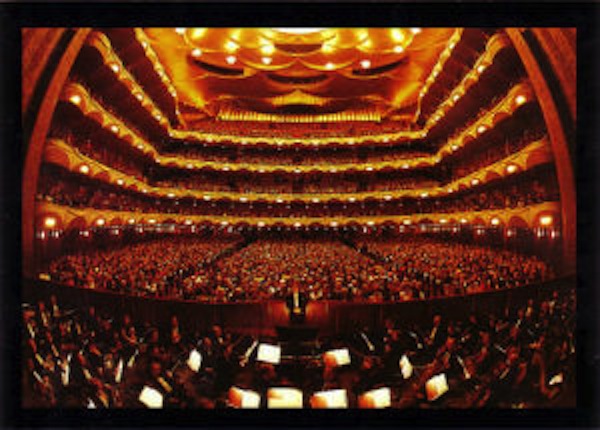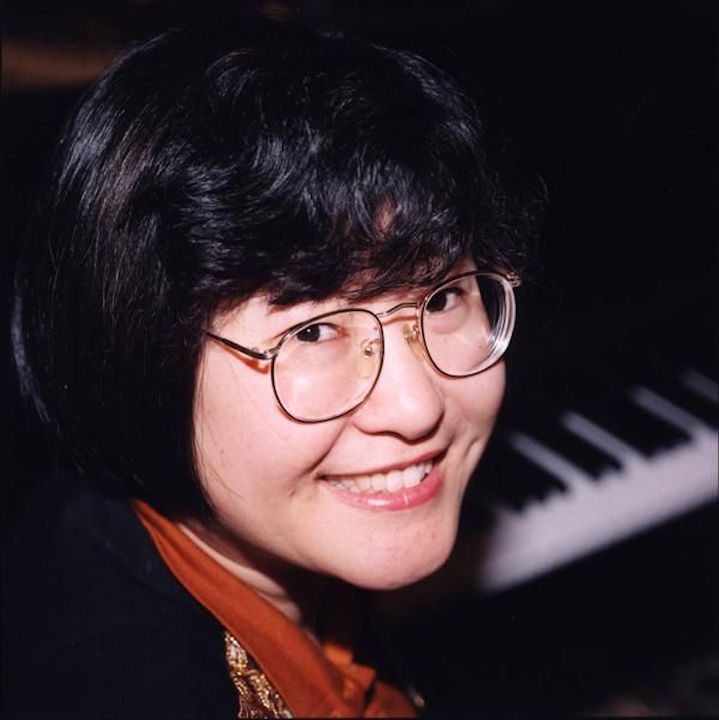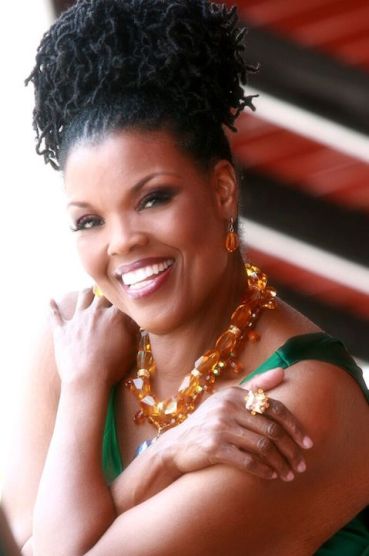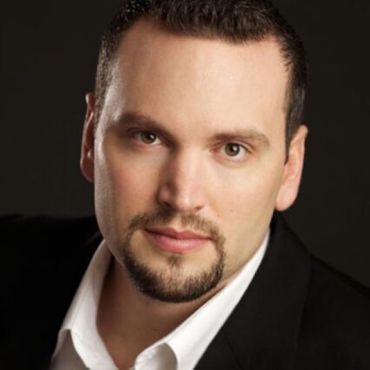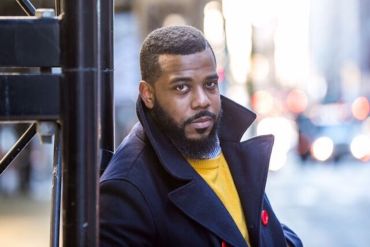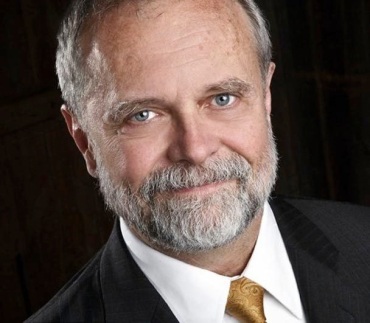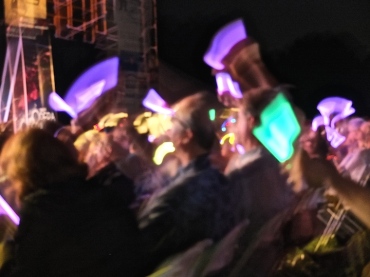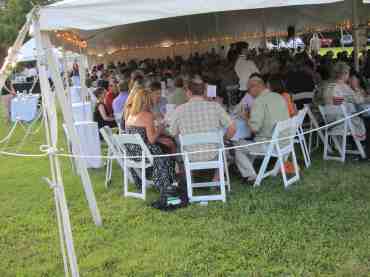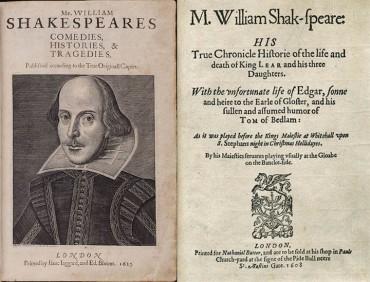The Well-Tempered Ear
Why do we like sad music?
6 Comments
PLEASE HELP THE EAR. IF YOU LIKE A CERTAIN BLOG POST, SPREAD THE WORD. FORWARD A LINK TO IT OR, SHARE IT or TAG IT (not just “Like” it) ON FACEBOOK. Performers can use the extra exposure to draw potential audience members to an event. And you might even attract new readers and subscribers to the blog.
By Jacob Stockinger
Why does sad music — or sad art — appeal to so many of us?
One psychologist and brain researcher — Matthew Sachs of Columbia University (below) — says it serves an evolutionary and social purpose by eliciting empathy for other humans and purging us of negative emotions, according to a story and interview on NPR (National Public Radio).
To The Ear, the explanation sounds a lot like the ancient Greek philosophy of catharsis that was the cornerstone justification for the public staging of great ancient tragedies by writers such as Aeschylus, Sophocles and Euripides, and of course the famous tragedies of Shakespeare such as “Romeo and Juliet,” Hamlet” and “King Lear” that were famously popular dramas as well as great masterpieces of Western literature.
Consider the case of Samuel Barber’s often-played “Adagio for Strings,” analyzed at length in a book called “The Saddest Music in the World.” Or perhaps the “Pathétique” piano sonata by Beethoven and the “Funeral March” piano sonata by Chopin. Or the requiems by Mozart and Brahms.
Or consider the music “Beautiful Sadness” by the contemporary composer Cliff Masterson (below). You can hear it in the YouTube video at the bottom.
Here is a link to the NPR story that discusses “the rules of musical melancholy.”
You can read it, or take four minutes to listen to it:
https://www.npr.org/2023/09/06/1173993223/understanding-the-joy-that-many-find-in-sadness
Do you find solace in sad music?
Does sad music make you feel better?
Do you have a favorite piece of sad music?
Or maybe a favorite tragic play, opera or work of art?
The Ear wants to hear.
Tags: #BlogPost, #BlogPosting, #FacebookPost, #FacebookPosting, #YouTubevideo, Adagio for Strings, Aeschylus, Ancient Greece, appeal, arranger, Art, Arts, audience, Bach, Baroque, beautiful, Beethoven, blog, Brahms, Brain, Britten, catharsis, Cello, Chamber music, Chopin, choral music, Classical music, Cliff Masterson, Columbia University, composer, Concert, concerto, conductor, contemporary, cornerstone, discuss, Early music, emotion, empathy, Euripides, evolution, evolutionary, explanation, Facebook, favorite, feel, funeral march, great, Greek tragedy, Hamlet, happiness, happy', Hollywood, human, interview, Jacob Stockinger, Johann Sebastian Bach, journalism, Joy, justification, King Lear, link, literature, Ludwig van Beethoven, Madison, Madison Symphony Orchestra, Matthew Sachs, melancholy, movie, Mozart, Music, National Public Radio, negative, news, NPR, opera, Orchestra, Overture Center, pathetique, philosophy, Piano, play, pleasure, popular, psychologist, psychology, purge, purpose, Radio, Requiem, research, rid, Romeo and Juliet, rule, sad, sadness, science, scientist, score, Shakespeare, share, social, solace, Sonata, Sophocles, soundtrack, story, symphony, tag, The Ear, tragedy, Tragic, United States, University of Wisconsin-Madison School of Music, University of Wisconsin–Madison, Viola, Violin, vocal music, Western, Wisconsin, Wolfgang Amadeus Mozart, work of art, Writer, YouTube
The Metropolitan Opera has canceled the rest of this season and announced the following season of Live in HD. How will the cancellation affect concert seasons here and elsewhere?
1 Comment
PLEASE HELP THE EAR. IF YOU LIKE A CERTAIN BLOG POST, SPREAD THE WORD. FORWARD A LINK TO IT OR, SHARE IT or TAG IT (not just “Like” it) ON FACEBOOK. Performers can use the extra exposure to draw potential audience members to an event. And you might even attract new readers and subscribers to the blog.
By Jacob Stockinger
Unfortunately, it seems like The Ear’s prediction on Monday is coming true.
Given the coronavirus spikes and complications of vaccine production, testing, distribution and administration, The Ear said, it looks like live concerts are likely to be canceled for the rest of this season and perhaps even for the fall of 2021.
Here is that post:
Then yesterday the Metropolitan Opera (below) in New York City announced exactly that: It is going to cancel the whole season, and not just the fall productions, as originally planned. (You can hear general manager Peter Gelb discuss the plans for this season and the next season in the YouTube video at the bottom.)
Given that the Met is the largest performing arts organization in the United States, it promises to be a Big Domino with a lot of influence and side effects.
Here is the Met story, with more quotes, details and information, from The New York Times:
https://www.nytimes.com/2020/09/23/arts/music/metropolitan-opera-cancels-coronavirus.html
Perhaps to provide some reassurance and attenuate the negative news of the decision to cancel, the Met also announced its Live in HD season for the 2021-22 season, which is based on live productions.
Here it is on the website Opera Wire: https://operawire.com/met-opera-2021-22-season-here-is-all-the-information-for-this-seasons-live-in-hd-performances/
And if you want to know what the Met (below, from the stage) is planning to offer instead, here is a link to the Met’s own website: https://www.metopera.org.
What do you think will be the local effects of the Met decision to cancel the entire season?
Will other musical organizations follow suit, cancel the entire new season of in-person events and go safely online with virtual events?
The Ear wants to hear.
Tags: #BadNews, #BlogPost, #BlogPosting, #BrendaRae, #ChoralMusic, #ClassicalMusician, #ConcertSeason, #CoronavirusPandemic, #COVID-19, #FacebookPost, #FacebookPosting, #FlorentineOpera, #FrescoOperaTheatre, #GaetanoDonizetti, #GeneralManager, #GiacomoPuccini, #GiuseppeVerdi, #HomeWebsite, #JacobStockinger, #JulesMassenet, #LiveConcerts, #LiveinHD, #LiveMusic, #LyricOperaofChicago, #MadisonOpera, #MadisonSymphonyOrchestra, #MetropolitanOpera, #MetropolitanOperaLiveinHD, #MinnesotaOpera, #MusicalOrganization, #NewMusic, #NewYorkCity, #NewYorkTimes, #NicholasCarter, #OperaMusic, #OperaWire, #PerformingArts, #PeterGelb, #PublicHealth, #RichardStrauss, #SarahRuhl, #SeasonSubscriber, #SideEffects, #TerenceBlanchard, #TheEar, #TheMet, #TheUS, #UnitedStates, #UniversityOpera, #VirtualConcert, #VocalMusic, #WisconsinChamberOrchestra, #YannickNezet-Seguin, #YouTubevideo, 2020-21, 2021-22, administration, African American, announce, announcement, Arts, attenuate, audience, bad news, big, black, blog, Brenda Rae, cancel, cancellation, choral concert, choral music, Classical music, classicalmusic, come, composer, Concert, concert season, conductor, coronavirus, decision, detail, digital, discuss, distribution, domino, Donizetti, Facebook, fall, Florentine Opera, forward, Fresco Opera Theatre, Gaetano Donizetti, general manager, Giacomo Puccini, Giuseppe Verdi, Hamlet, HD, home website, in person, influence, information, instead, Jacob Stockinger, like, link, live, live concerts, Live in HD, live music, Lyric Opera of Chicago, Madison, Madison Opera, Madison Symphony Orchestra, Massenet, Metropolitan Opera, Metropolitan Opera Live in HD, Minnesota Opera, Music, musical, musical organizations, negatie, New Music, New York City, New York Times, news, Nicholas Carter, offer, online, opera, Opera Wire, Orchestra, organization, origial, Overture Center, pandemic, performer, Performing arts, Peter Gelb, plan, planned, post, posting, predict, prediction, premiere, production, Public health, Puccini, quotes, reader, reassurance, recital, Richard Strauss, safe, safely, Sarah Ruhl, Season, share, side effects, sing, singer, Singing, spike, Spring, stars, story, Strauss, subscriber, symphony, tag, Terence Blanchard, test, testing, The Ear, the Met, think, true, Turandot, unfortunate, United States, University of Wisconsin-Madison School of Music, University of Wisconsin–Madison, University Opera, US, Verdi, virtual, vocal music, Website, Wisconsin, Wisconsin Chamber Orchestra, Yannick Nézet-Séguin, yesterday, you, YouTube
Classical music: Soprano Sarah Brailey and nine UW-Madison cellists team up for the FREE concert of songs at Grace Presents this Saturday at noon
1 Comment
IF YOU LIKE A CERTAIN BLOG POST, PLEASE SPREAD THE WORD. FORWARD A LINK TO IT OR, SHARE IT or TAG IT (not just “Like” it) ON FACEBOOK. Performers can use the extra exposure to draw potential audience members to an event. And you might even attract new readers and subscribers to the blog.
By Jacob Stockinger
This Saturday, Sept. 21, at noon, a FREE one-hour program in the Grace Presents series will feature soprano Sarah Brailey (below) in “My Loyal Heart,” a recital of songs by Arvo Pärt, John Tavener, Guillaume de Machaut, Dmitri Shostakovich and Heitor Villa-Lobos.
The concert is at Grace Episcopal Church (below), located downtown on the Capitol Square at 116 West Washington Avenue.
Brailey is an acclaimed professional singer who often tours and who is doing graduate work at the University of Wisconsin-Madison’s Mead Witter School of Music.
Brailey will be joined by friends and colleagues. They include UW baritone Paul Rowe and members of the UW Madison Cello Ensemble, featuring nine local Madison cellists who include Grace Presents program coordinator James Waldo. (Below is a summer cello choir at the UW-Madison from several years ago.)
The works will be sung in Russian, Portuguese, and both modern and medieval French.
Here is an introduction from Waldo:
“It is often said that the cello is the instrument most like the human voice.
“My Loyal Heart,” devotes an entire program to music for soprano Sarah Brailey and cello from the 14th century to the 20th century.
“It opens with Arvo Pärt’s L’abbé Agathon about the legend of Father Agathon from the 4th century book “The Desert Fathers,” followed by a new arrangement by Brailey for soprano and cello trio of Guillaume de Machaut’s elegant love song Se quanque amours puet donner.
“This intimately ardent piece is followed by a more tragic love story, that of Shakespeare’s Ophelia, in the opening movement of Dmitri Shostakovich’s Seven Romances on Poems by Alexander Blok.
“The program continues in Russian with Sir John Tavener’s powerful and darkly spiritual Akhmatova Songs with poetry by Russian-Soviet Modernist poet, Anna Akhmatova.
“The concert concludes with the hauntingly beautiful and famous first movement and the playful concluding dance of Bachianas Brasileiras (Brazilian Bach Suites) No.5 for soprano and eight cellos by Brazilian composer Heitor Villa-Lobos. (You can hear the Villa-Lobos aria in the YouTube video at the bottom.)
“Text and translations will be provided.
“This program will not be performed anywhere else in Madison.”
Tags: #AlexanderBlok, #AnnaAkhmatova, #ArvoPärt, #BlogPost, #BlogPosting, #BrazilianComposer, #CapitolSquare, #CelloChoir, #ChristianChurch, #DesertFathers, #DmitriShostakovich, #EnglishLanguage, #EnglishLiterature, #EnglishTranslation, #FacebookPost, #FacebookPosting, #FatherAgathon, #FrenchLanguage, #GraceEpiscopalChurch, #GracePresents, #GraduateStudent, #GuillaumedeMachaut, #HeitorVilla-Lobos, #James Waldo, #JamesWaldo, #JohannSebastianBach, #JohnTavener, #JohnTaverner, #LoveSong, #MeadWitterSchoolofMusic, #MedievalFrench, #ModernFrench, #PaulRowe, #PortugueseLanguage, #ProfessionalMusician, #RussianLanguage, #RussianLitertaure, #SarahBrailey, #SopranoSinger, #SovietMusic, #SovietUnion, #UniversityofWisconsin-Madison, #WilliamShakespeare, #YouTubevideo, Alexander Blok, Anna Akhmatova, Arvo Part, Bach, baritone, blog, Book, Brazil, Brazilian, Capitol Square, cellist, Cello, cello choir, Choir, Christian, Christian church, church, classicalmusic, colleagues, Concert, coordinator, dark, desert, Dmitri Shostakovich, downtown, drama, elegant, England, English, Facebook, father, Father Agathon, France, free, French, French language, friends, Grace Episcopal Church, Grace Presents, graduate student, Guillaume de Machaut, Hamlet, heart, Heitor Villa-Lobos, Johann Sebastian Bach, John Tavener, John Taverner, language, local, love song, loyal, Madison, Mead Witter School of Music, modern, modernist, Music, Ophelia, Paul Rowe, poem, Poetry, Portuguese, post, posting, professional, program, recital, Religion and Spirituality, Romance, Russia, Russian, Sarah Brailey, series, Shakespeare, Shostakovich, singer, soprano, Soviet, spiritual, Suite, summer, text, tour, tragedy, translation, trio, University of Wisconsin–Madison, USSR, UW-Madison, Villa-Lobos, years, YouTube
Classical music: The talented new director of the Isthmus Vocal Ensemble sets the acclaimed and still impressive group on a new path with mixed results and hopeful expectations
6 Comments
By Jacob Stockinger
Here is a special posting, a review written by frequent guest critic and writer for this blog, John W. Barker. Barker (below) is an emeritus professor of Medieval history at the University of Wisconsin-Madison. He also is a well-known classical music critic who writes for Isthmus and the American Record Guide, and who hosts an early music show once a month on Sunday morning on WORT-FM 89.9 FM. For years, he served on the Board of Advisors for the Madison Early Music Festival and frequently gives pre-concert lectures in Madison. He also took the performance photos.
By John W. Barker
The Isthmus Vocal Ensemble (IVE, below) is a well-established part of Madison’s musical summers. It offers dedicated choral singers a chance for intensive rehearsal preparation of highly accomplished choral music, and has delivered some truly memorable events over the years.
Of its concerts this year, I caught the second performance on Sunday afternoon. The choir itself doesn’t need to be shown off by now, but it was the choir’s chance to show off its new conductor in his first appearance here.
Michael McGaghie (below) is that new conductor. He is very plainly a brilliant choral technician who knows how to make a choir sound wonderful. (For more about McGaghie, who is the Director of Choral Activities at Macalester Collge in St. Paul and who leads the Harvard Glee Club Alumni Chorus in Cambridge, Mass., go to: https://www.isthmusvocalensemble.org/artisticdirector/)
That he did throughout the program. The IVE — 69 singers strong — certainly responded with an infectious enthusiasm that was also communicated to the large audience that filled the Christ Presbyterian Church. The concert was certainly a feast of great choral singing.
But what about the music?
To begin with, the actual music amounted to no more than about an hour’s worth. McGaghie planned the program as a progress of emotional moods, and he introduced each piece himself.
But what were the contents? McGaghie largely turned his back on the centuries of great choral music, the kind that his predecessor Scott MacPherson explored so ambitiously.
There were, at the beginning, two examples of that, motets by Thomas Tallis of the 16th century and Heinrich Schütz of the 17th century.
There was also an interesting nugget from the Russian composer and conductor Nikolai Golovanov (below), an early work of his (1917), setting the Lord’s Prayer (Otche naš) In a style departing from the previous two centuries of great Russian Orthodox choral writing.
Beyond those, however, the remaining nine items in the program — and the encore — were entirely by recent composers, mostly living and mostly American. These were his introductory calling cards, and so they invite scrutiny.
Ours is not an age of great, idiomatic choral writing, and composers go their own ways variously. Many of them rely upon a kind of chordal declamation with little sense of line or full-bodied texture.
Some pieces I don’t think I would want to hear again, and a couple I would not have wanted to hear even the first time.
An example of the latter is a piece about sirens and sailors by Chinese-American Chen Yi (below top), a collage of weird choral sounds but no musical content recognizable to any but Chinese ears.
Another was a loudly trashy adaptation of a Civil Rights “freedom song” by Jeffrey Douma (below bottom), plus the gesture to multicultural triviality in a Philippine folksong arrangement.
Three of the items came with piano accompaniment. In The Whole Sea in Motion by Dale Trumbore (below top) — which uses a text from Anne Brontë — the piano gave an underlying ripple to support declamatory, non-linear writing.
In Eternity by Donald Martino (below), the pleasantly lyrical choral writing really didn’t need the piano at all. And that part was much too prominent against Morten Lauridsen’s nicely polyphonic, and quite self-sufficient, choral texture in “Sure on This Shining Night” that treated James Agee’s famous poem. (You can hear the Lauridsen work in the YouTube video at the bottom.)
There were certainly some among these contemporary items that I found quite enjoyable.
In Ophelia, a setting the account of that woman’s death in Hamlet, Jocelyn Hagen (below top) was overly concerned with story-telling, but the work certainly contained some lovely writing. O Radiant Dawn by Scottish master James MacMillan (below bottom) was a beautifully sonorous tribute to Catholic liturgical tradition.
What does this conducting debut point to for the future?
McGaghie can create the most splendid choral beauty — though often at the sacrifice of clear diction. On the basis of this program, it looks like he could now focus the IVE on lots of short contemporary pieces, rather than on the vast traditional literature.
We will have to see.
Tags: #Americancomposers, #AmericanRecordGuide, #AnneBrontë, #BlogPost, #BlogPosting, #CambridgeMassachusetts, #ChenYi, #ChoralMusic, #ChristianChurch, #ChristianReligion, #ChristPresbyterianChurch, #CivilRights, #DaleTrumbore, #DonaldMartino, #EmeritusProfessor, #GleeClub, #HarvardUniversity, #HeinrichSchütz, #IsthmusNewspaper, #IsthmusVocalEnsemble, #JamesAgee, #JamesMacMillan, #JeffreyDouma, #JesusChrist, #JocelynHagen, #JohnW.Barker, #Lord'sPrayer, #MacalesterCollege, #MadisonEarlyMusicFestival, #MedievalHistory, #MichaelMcGaghie, #MortenLauridsen, #MusicCritic, #NikolaiGolovanov, #PianoAccompaniment, #PolyphonicMusic, #RomanCatholicism, #RussianComposer, #ScottMacPherson, #St.PaulMinnesota, #ThomasTallis, #UniversityofWisconsin, #UniversityofWisconsin-Madison, #WilliamShakespeare, #WORT-FM89.9, 16th century, 17th century, accompaniment, alumni, American Record Guide, Anne Brontë, arrangement, Arts, Baroque, beauty, brilliant, Chen Yi, Chinese, Chinese-American, Choir, choral, choral music, chordal, Christ, Christ Presbyterian Church, church, civil rights, Classical music, classicalmusic, collage, composer, Concert, conductor, Dale Trumbore, declamation, director, Donald Martino, Early music, earlymusic, emeritus, emotion, emotional, enthusiasm, event, famous, feast, folk song, folksong, gesture, Glee Club, Hamlet, Harvard, Heinrich Schütz, History, infectious, Isthmus, Isthmus Vocal Ensemble, Jacob Stockinger, James Agee, James MacMillan, Jesus, Jesus Christ, Jocelyn Hagen, John W. Barker, lecture, liturgical, Lord, Lord's Prayer, Madison, Madison Early Music Festival, Medieval, MEMF, memorable, Michael McGaghie, Morten Lauridsen, motet, multicultural, Music, Nikolai Golovanov, Ophelia, Philippine, photo, Piano, piece, plan, poem, Poetry, polyphonic, polyphony, prayer, Presbyterian, professor, program, recent, rehearsal, Roman Catholicism, Russian, Scotland, Scott MacPherson, Scottish, sea, Shakespeare, singer, Singing, St. Paul, summer, Thomas Tallis, tribute, triviality, United States, University of Wisconsin-Madison School of Music, University of Wisconsin–Madison, vocal music, Wisconsin, WORT-FM 89.9, YouTube
Classical music: UW oboist Aaron Hill performs world premieres and little known composers in a FREE recital Sunday afternoon
1 Comment
By Jacob Stockinger
This is Homecoming weekend at the University of Wisconsin-Madison, and it is busy on many counts, including several classical music concerts in the city on Sunday afternoon.
But one of the more intriguing is a FREE recital at 3 p.m. in Mills Hall by UW-Madison Professor Aaron Hill (below), who teaches oboe and also performs in the Wingra Woodwind Quintet.
Hill will be joined by collaborative pianist Daniel Fung (below), who is also a vocal coach at the Mead Witter School of Music at the UW-Madison.
Particularly noteworthy is the number of world premieres and relatively unknown contemporary composers on the program.
Here is the program:
“Poem,” for oboe and piano (1953) by Marina Dranishnikova (1929-1994, below). (You can hear it in the YouTube video at the bottom.)
Oboe Sonata (1947) by Jean Coulthard (1908-2000)
- Gently Flowing
- Sicilienne
- Allegro
Intermission
* Soliloquies (2013) by Andre Myers (b. 1973)
- To be or not to be
- There’s Rosemary, that’s for remembrance
- In the Month of May
- Spring Discourse
* world premiere performance
* After Manchester (2017) Aaron Hill and Michael Slon (b. 1982 and 1970, respectively) * world premiere performance
Four Personalities (2007) Alyssa Morris (b. 1984)
- Yellow
- White
- Blue
- Red
Here are some program notes by Aaron Hill:
“This program highlights five different ways to program previously unfamiliar music, as explained below.
“Poem” by Marina Dranishnikova came to me through our local community. Oliver Cardona, currently a junior music major at UW-Madison, initially brought it to my attention. The work was discovered and edited by my predecessor, Professor Marc Fink (below), during his travels in Russia.
I first heard the Oboe Sonata by Jean Coulthard (below) at the 2017 International Double Reed Society conference at Lawrence University in Appleton, Wis.
Charles Hamann, the principal oboist of the National Arts Centre Orchestra in Ottawa, edited and recorded it as part of a large project to bring international attention to masterpieces by Canadian composers.
Andre Myers (below) attended the University of Michigan with me and we first became acquainted when I performed one of his orchestral works. His beautiful writing for English horn started our friendship and 15 years later, he wrote his Soliloquies for me.
The first two are based on famous scenes from Shakespeare’s “Hamlet.” The third is based on a poem by Minnesota’s first poet laureate, Robert Bly, which will be read aloud from the stage. The final movement is inspired by a dream vision he had of centaurs playing in a meadow.
“After Manchester” was originally a free improvisation I recorded and posted to social media in the wake of the terror attack at Ariana Grande’s concert on June 4, 2017.
Later in the summer, Professor Michael Slon (below), the Director of Choral Activities at the University of Virginia, transcribed my improvisation and wrote a piano part to transform it into a piece of chamber music. The work was completed just days before the violent events in Charlottesville.
Professor Alyssa Morris (below) currently teaches oboe at Kansas State University and her compositions have become widely performed as standard literature for oboists in recent years.
She wrote “Four Personalities” to perform in her own undergraduate recital at Brigham Young University and I first heard it while searching for oboe music on YouTube. The piece is based on the Hartmann Personality Test.
In her words, the colors correspond to the following types:
Yellow: Yellow is fun-loving. The joy that comes from doing something just for the sake of doing it is what motivates and drives yellow.
White: White is a peacekeeper. White is kind, adaptable, and a good listener. Though motivated by peace, white struggles with indecisiveness.
Blue: Blue brings great gifts of service, loyalty, sincerity, and thoughtfulness. Intimacy, creating relationships, and having purpose is what motivates and drives blue.
Red: Motivated by power. Red is aggressive and assertive. Red is visionary, confident, and proactive.
Tags: Aaron Hill, adapt, afternoon, aggressive, allegro, aloud, Andre Myers, Appleton, Ariana Grande, Arts, assertive, beautiful, beauty, blue, Brigham Young University, busy, Canada, Canadian, centaur], Chamber music, Charlottesville, city, Classical music, colors, community, composer, Composition, Concert, confident, Creation, Daniel Fung, discourse, dream, England, English horn, famous, flowing, Folger Shakespeare Library, friend, friendship, fun, fun-loving, gentle, Hamlet, Hartmann Personality Test, Homecoming, improvisation, improvise, internaitonal, International Double Reed Society, intimacy, Jacob Stockinger, Jean Coulthard, Joy, Kansas, Kansas State University, laureate, Lawrence University, Lawrence University Conservatory of Music, listener, Love, loving, loyalty, Madison, Manchester, Marc Fink, Marina Dranishnikova, masterpiece, May, Mead Witter School of Music, meadow, media, Michael Slon, Michigan, Minnesota, motivation, Music, National Arts Centre Orchestra, New Music, notes, Oboe, Orchestra, orchestral, Ottawa, peace, personality, personality type, Piano, poem, poet, Poet laureate, Poetry, power, premiere, proactive, professor, program notes, purpose, read, recent, recital, red, relationship, Robert Bly, Russia, scene, service, Shakespeare, Sicilienne, sincerity, social media, soliloquy, Sonata, Spring, stage, summer, Sunday, teach, terror, terrorist, terrorist attack, thought, thoughtfulness, transcribe, transcription, travel, type, UK, undergraduate, United Kingdom, United States, University of Michigan, University of Virginia, University of Wisconsin-Madison School of Music, University of Wisconsin–Madison, video, violence, Virginia, vision, visionary, white, Wingra Woodwind Quintet, Wisconsin, world, world premiere, years, yellow, YouTube
Classical music: Madison Opera’s FREE “Opera in the Park” turns 15 and takes place this Saturday night
2 Comments
By Jacob Stockinger
The Ear has received the following press release about one of the fun cultural highlights of the summer, which was started by the late Ann Stanke 15 years ago.
In The Ear’s experience, the whole event is a kind of light opera in itself, with food and amusements as well as community social interactions and of course great music that is beautifully performed.
Madison Opera’s FREE Opera in the Park will celebrate its 15th year on this Saturday, July 23, at 8 p.m. in Garner Park on Madison’s far west side.
The annual free concert of opera and Broadway favorites closes the company’s fantastic 2015-16 season and provides an enticing preview of the upcoming 2016-17 season.
A Madison summer tradition that attracts over 15,000 people every year, Opera in the Park brings the best of opera and Broadway to the community, creating an enchanting evening of music under the stars.
Opera in the Park 2016 stars soprano Emily Birsan (below top), soprano Angela Brown (below second), tenor Scott Quinn (below third) and baritone Sidney Outlaw (below fourth).
They are joined by the Madison Opera Chorus and Madison Symphony Orchestra, conducted by the returning Gary Thor Wedow (below) instead of John DeMain, who is spending the summer guest conducting at the acclaimed Glimmerglass Festival in upper New York State.
The evening is hosted by Madison Opera’s General Director Kathryn Smith and WKOW TV’s 27 News Wake-Up Wisconsin anchor Brandon Taylor.
“Opera in the Park is without question my favorite night of the year,” says Smith (below, in a photo by James Gill). “When you combine a live performance of beautiful music with thousands of people from across our community, all under a gorgeous night sky, you get the most important performance Madison Opera gives.
“I often brag to my colleagues around the country about our Opera in the Park, as it is so distinctly important in our community – not to mention having the highest per capita attendance of any such concert in the U.S.
“I am so proud that we are celebrating our 15th summer of this incredible event, and grateful to all who make it possible.”
Opera in the Park 2016 features arias and ensembles from Charles Gounod’s Romeo and Juliet, which opens the 2016-17 season in November; Daniel Schnyder’s jazz-inspired Charlie Parker’s Yardbird, which will be performed in February; and Wolfgang Amadeus Mozart’s The Magic Flute, which will be performed in April.
In celebration of the 400th anniversary of William Shakespeare’s death, the concert will also offer selections from Shakespeare-based operas and musicals such as Hamlet, The Boys from Syracuse and Kiss Me, Kate.
Classic selections from Aida and Rigoletto by Giuseppe Verdi, The Pearl Fishers by Georges Bizet; Porgy and Bess by George Gershwin and more round out this spectacular evening, which always includes one number conducted by the audience with light sticks (below).
Garner Park is located at 333 South Rosa Road in Madison’s far west side. Parking is available in the CUNA Mutual Group and University Research Park lots.
Attendees are encouraged to bring picnics, blankets and chairs.
Alcohol is permitted but not sold in the park.
On the day of the concert, Garner Park will open at 7 a.m. Audience members may NOT leave items in the park prior to this time.
The rain date for Opera in the Park is Sunday, July 24, at 8 p.m.
Madison Opera is grateful to the major sustaining donors who support Opera in the Park not only this year, but have done so for many years, enabling the concert to reach this 15th anniversary: CUNA Mutual, the Berbeewalsh Foundation, the John and Carolyn Peterson Charitable Foundation, Full Compass Systems, University Research Park, Colony Brands, the MGE Foundation, and an Anonymous Friend.
Opera in the Park 2016 is also generously sponsored by the Richard B. Anderson Family Foundation, BMO Harris Bank, Starion Financial, Wisconsin Bank & Trust, National Endowment for the Arts Wisconsin Arts Board, Dane Arts, the Evjue Foundation, and the Madison Arts Commission. WKOW, Isthmus, Madison Magazine, Wisconsin Public Radio, Triple M, Mix 105.1, and WOLX are media sponsors for this community event.
RELATED EVENT: PRELUDE DINNER AND FUNDRAISER
The Prelude Dinner (below) at Opera in the Park 2016 is at 6 p.m.
This annual fundraiser to benefit Opera in the Park helps support Madison Opera’s free gift to the community.
The event includes dinner catered by Upstairs Downstairs, VIP seating at the concert, a complimentary light stick and a reception with the artists following the performance.
Tickets are $135 per person or $1,000 for a table of eight. More information is available at www.madisonopera.org
Tags: Aida, alcohol, Arts, baritone, Bizet, Broadway, Charles Gounod, Charlie Parker, choral music, chorus, Classical music, Dane Arts, Gary Thor Wedow, Gershwin, Glimmerglass, Hamlet, Isthmus, Jacob Stockinger, Jazz, John DeMain, Kate, Kiss Me, Madison, Madison Magazine, Madison Opera, Madison Opera Chorus, Madison Symphony Orchestra, Mozart, Music, musica; theater, musical, National Endowment for the Arts, NEA, New York, opera, Opera in the Park, outdoors, Porgy, Rigoletto, Romeo and Juliet, soprano, tenor, The Boys From Syracuse, The Magic Flute, The Pearl Fishers, theater, United States, University of Wisconsin-Madison School of Music, University of Wisconsin–Madison, Verdi, vocal music, William Shakespeare, Wisconsin Arts Board, wisconsin public radio, WKOW TV, Yardbird
Classical music: William Shakespeare died 400 years ago today. What is your favorite music inspired by The Bard, the greatest writer of all time?
10 Comments
By Jacob Stockinger
He is generally acknowledged as the greatest writer of all time and of any culture.
The English poet and playwright William Shakespeare (below) died 400 years ago today – on April 23, 1616 — in his hometown of Stratford-on-Avon where he returned to after his stage career in London. He was 52 years old.
You may have heard that a touring copy of the rare 1623 First Folio edition of his plays, on loan from the Folger Shakespeare Library in Washington, D.C., will be on display this fall at the Chazen Museum of Art at the University of Wisconsin-Madison. Dates of the exhibit are Nov. 3-Dec. 11, 2016.
Here is a link with more information:
And this summer’s Madison Early Music Festival will focus on Shakespeare and music of the Elizabethan Age when it is held from July 9 to July 16.
Here is more information about that event:
https://artsinstitute.wisc.edu/memf/
Today, what The Ear wants to know is what is your favorite piece of music inspired by Shakespeare?
The Overture to “A Midsummer Night’s Dream” by Felix Mendelssohn? (The Ear loves that richly atmospheric work. You can hear it, complete with the braying of the “rude mechanical” human who is transformed into a donkey — in a YouTube video at the bottom)
The operas ”Otello” or “Falstaff” by Giuseppe Verdi?
The opera versions of “Romeo and Juliet” by Hector Berlioz and Charles Gounod?
The incidental music to “Henry V,” “Hamlet” and “Richard III” by William Walton?
Franz Schubert’s song “Where is Sylvia”?
The “Romeo and Juliet” Fantasy Overture by Tchaikovsky?
Various setting of songs and ditties in Shakespeare’s plays?
If you need something to jog your memory about possible choices, here is a link:
https://en.wikipedia.org/wiki/Category:Music_based_on_works_by_William_Shakespeare
Leave your choice, with a YouTube link if possible, in the COMMENTS section.
The Ear wants to hear.
Tags: A Midsummer Night's Dream, Arts, Bard, Chazen Museum of Art, Classical music, comedy, D.C., drama, Early music, Elizabethan England, England, Falstaff, fantasy, First Folio, Folger Shakespeare Library, Gounod, Great Britain, Hamlet, Henry V, Jacob Stockinger, London, Madison Early Music Festival, Mendelssohn, Music, opera, Otello, Othello, Overture, play, playwright, Queen Elizabeth, Richard III, Romance, Romeo and Juliet, Stratford-on-Avon, Stratford-upon-Avon, tragedy, UK, University of Wisconsin-Madison School of Music, University of Wisconsin–Madison, Verdi, Washington, William Shakespeare, William Shakespeare's plays, William Walton, Wisconsin, Writer, YouTube
- May 2024
- April 2024
- March 2024
- February 2024
- January 2024
- December 2023
- November 2023
- October 2023
- September 2023
- August 2023
- July 2023
- June 2023
- May 2023
- April 2023
- March 2023
- February 2023
- January 2023
- December 2022
- October 2022
- September 2022
- June 2022
- May 2022
- April 2022
- March 2022
- July 2021
- June 2021
- May 2021
- April 2021
- March 2021
- February 2021
- January 2021
- December 2020
- November 2020
- October 2020
- September 2020
- August 2020
- July 2020
- June 2020
- May 2020
- April 2020
- March 2020
- February 2020
- January 2020
- December 2019
- November 2019
- October 2019
- September 2019
- August 2019
- July 2019
- June 2019
- May 2019
- April 2019
- March 2019
- February 2019
- January 2019
- December 2018
- November 2018
- October 2018
- September 2018
- August 2018
- July 2018
- June 2018
- May 2018
- April 2018
- March 2018
- February 2018
- January 2018
- December 2017
- November 2017
- October 2017
- September 2017
- August 2017
- July 2017
- June 2017
- May 2017
- April 2017
- March 2017
- February 2017
- January 2017
- December 2016
- November 2016
- October 2016
- September 2016
- August 2016
- July 2016
- June 2016
- May 2016
- April 2016
- March 2016
- February 2016
- January 2016
- December 2015
- November 2015
- October 2015
- September 2015
- August 2015
- July 2015
- June 2015
- May 2015
- April 2015
- March 2015
- February 2015
- January 2015
- December 2014
- November 2014
- October 2014
- September 2014
- August 2014
- July 2014
- June 2014
- May 2014
- April 2014
- March 2014
- February 2014
- January 2014
- December 2013
- November 2013
- October 2013
- September 2013
- August 2013
- July 2013
- June 2013
- May 2013
- April 2013
- March 2013
- February 2013
- January 2013
- December 2012
- November 2012
- October 2012
- September 2012
- August 2012
- July 2012
- June 2012
- May 2012
- April 2012
- March 2012
- February 2012
- January 2012
- December 2011
- November 2011
- October 2011
- September 2011
- August 2011
- July 2011
- June 2011
- May 2011
- April 2011
- March 2011
- February 2011
- January 2011
- December 2010
- November 2010
- October 2010
- September 2010
- August 2010
- July 2010
- June 2010
- May 2010
- April 2010
- March 2010
- February 2010
- January 2010
- December 2009
- November 2009
- October 2009
- September 2009
- August 2009
Archives
- 2,493,280 hits
Blog Stats
Recent Comments
| welltemperedear on What do you think of the… | |
| Scott on What do you think of the… | |
| welltemperedear on Yunchan Lim’s Chopin etudes ar… | |
| bratschespeilerin on What do you think of the… | |
| MARVIN P WICKENS on Yunchan Lim’s Chopin etudes ar… |
Tags
#BlogPost #BlogPosting #ChamberMusic #FacebookPost #FacebookPosting #MeadWitterSchoolofMusic #TheEar #UniversityofWisconsin-Madison #YouTubevideo Arts audience Bach Baroque Beethoven blog Cello Chamber music choral music Classical music Compact Disc composer Concert concerto conductor Early music Facebook forward Franz Schubert George Frideric Handel Jacob Stockinger Johannes Brahms Johann Sebastian Bach John DeMain like link Ludwig van Beethoven Madison Madison Opera Madison Symphony Orchestra Mead Witter School of Music Mozart Music New Music New York City NPR opera Orchestra Overture Center performer Pianist Piano post posting program share singer Sonata song soprano String quartet Student symphony tag The Ear United States University of Wisconsin-Madison School of Music University of Wisconsin–Madison Viola Violin vocal music Wisconsin Wisconsin Chamber Orchestra wisconsin public radio Wolfgang Amadeus Mozart YouTube



